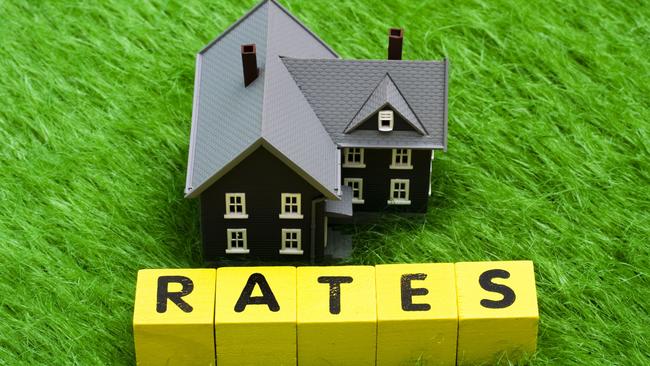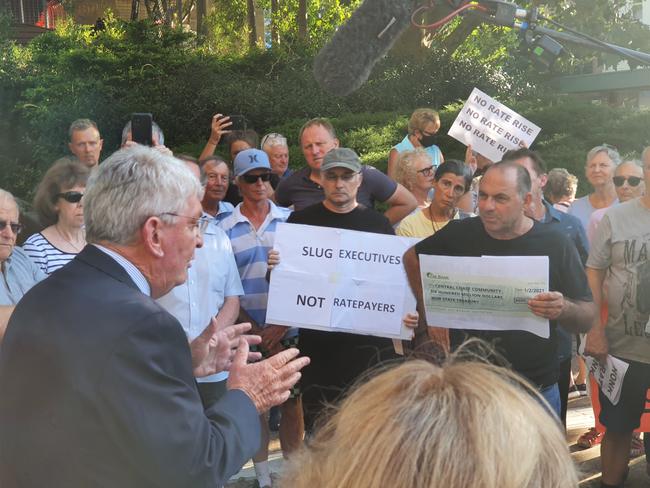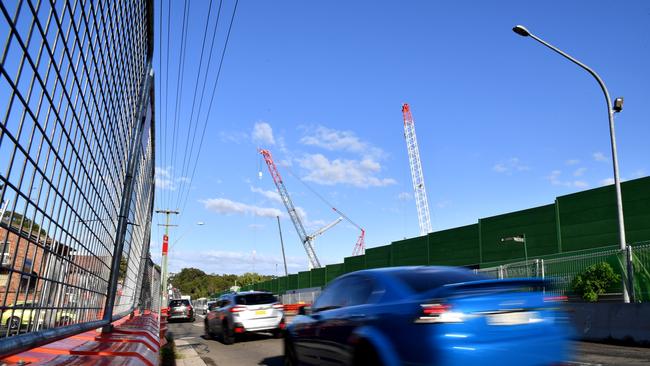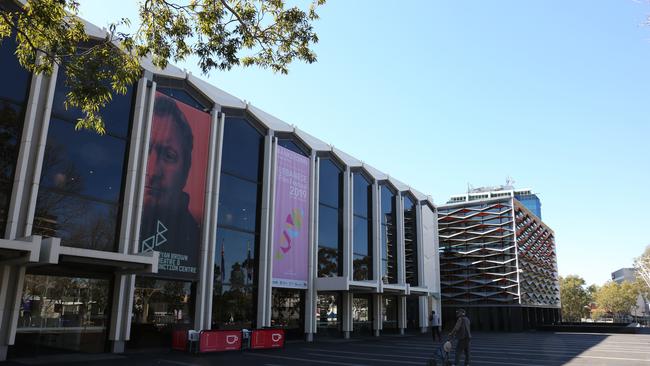IPART approves major rate increases for Sydney, regional councils
Hundreds of thousands of homeowners are set to be slugged with major increases in rates. SEE IF YOU WILL PAY MORE.
Local
Don't miss out on the headlines from Local. Followed categories will be added to My News.
Rates will skyrocket for hundreds of thousands of people in NSW after councils won their bids to jack up costs and rake in a combined $579.2 million in extra income.
Hundreds of thousands of ratepayers are set to see major increases in their rates following successful bids by NSW councils to The independent Pricing and Regulatory Tribunal.
In Sydney’s southwest, Canterbury-Bankstown Council is set to increase rates by 36.34 per cent over the next five years generating a further $324.2 million to the council’s $2.317 billion coffers.
Meanwhile, a bid for a 53.5 per cent increase over four years was approved for Cootamundra-Gundagai Regional in the Riverina generating a further 27 million.

A total of ten councils across the state were approved by IPART for applications for special variations or minimum rate increases to expand income from rates above the pegged rate of 2.0 per cent, despite objections from ratepayers to the tribunal.
IPART acting chairwoman Deborah Cope said single year special rate variation increases were approved for Armidale Regional Council, Federation Council and Tweed Shire Council.
Meanwhile, applications for multi‑year increases were approved for Canterbury Bankstown Council, Cootamundra-Gundagai Regional Council and Georges River Council.
CENTRAL COAST RATE RISE
Ratepayers in the financially crippled Central Coast Council local government area will also see a major increase in payments to council in an effort to recover debt, with three-year rate variations expected to generate a further $70.2 million.
Following the rate rise, the embattled council’s total general income will rise to $621.9 million.
“IPART has decided to approve a temporary increase for Central Coast Council,” she said.
“This will allow the council to increase its general income from rates for three years only.”
The rate increase comes as a public inquiry into the embattled council, which has an accumulated debt of $565m over the past four years, was announced by Local Government Minister Shelley Hancock last month.
Earlier this month, the terms of reference for the inquiry were set by the Office of Local Government, with commissioner Roslyn McCulloch to determine “whether the governing body acted in a manner that maximised the success of gaining efficiencies and financial savings from the merger process” and whether they reviewed the financial performance of council.
Booker Bay resident Tom Colosimo, who has been protesting against the rate rise and petitioning for a judicial inquiry into the crisis, said he wasn’t shocked by IPART’s decision.
He said once the public inquiry was announced, and the judicial inquiry rejected, the rate rise was a given.

“If the judicial inquiry had have gone ahead, it would have put the breaks on a rate rise until all matters were dealt with,” he said.
“People across the coast are saying ‘why should we pay, it wasn’t our fault’.”
However he said with the small numbers turning out at protests and the NSW Parliament debate on the judicial inquiry, people have no reason to whinge.
“We needed to have the community there in numbers,” he said.
Kevin Brooks, who co-administrates the Facebook page dedicated to opposing the rate rise, said it was a small comfort to see IPART limit the increase to three years.
“IPART, in approving a rate hike, is sending a perverse message to councils that financial mismanagement creates financial need which in turn unlocks IPART’s criteria for a rate hike,” he said.
“This does nothing to disincentivize financial mismanagement.”
MORE FROM CENTRAL COAST
Central Coast Council crisis: Administrator delivers final report to the community
Central Coast Council financial crisis: Business recovery plan phased out
INNER WEST RATE RISE
Harmonising rates across the mega-council - which combined Marrickville, Leichhardt and Ashfield in 2016 - has sparked fury among councillors and residents.
Some have argued it would be unfair to match rates in affluent suburbs like Balmain with predominantly working class areas like Ashfield, where homeowners would be slugged with an increase.
Their reasoning is that those suburbs with a high number of small unit owners would be paying rates as if they owned a house.
Five years after it was forcibly merged the inner west’s 15 councillors still cannot agree on how to harmonise its rates.

So firey have the discussions inside the meeting chamber been that there is now a call to split the councils up again as its financials predict a 10-year deficit.
Marrickville councillor Vic Macri said one of the most diverse areas of the inner west, home to the Greek and Portuguese communities of Sydney, had been short-changed on funding and that Marrickville was being used as the council’s “cash cow”.
“The people of Marrickville don’t deserve this,” he said.
“I can’t see anything here (in the amalgamation) that is going to benefit the people of Marrickville.”

BAYSIDE COUNCIL
Homeowners and businesses in the former Botany Bay Council area will be slugged with a huge rates increase during the next four years, following a decision by the Independent Pricing and Regulatory Tribunal (IPART).
The minimum rates fee in the area is currently $553 but that will increase to $844 by the 2024/25 financial year it has been announced - a whopping increase of just over 52 per cent.
Botany Bay Council and Rockdale Council were amalgamated in 2016 to form Bayside Council.
Ratepayers have continued to pay rates in line with their former councils but Bayside Council is now moving to “harmonise” rates – effectively introducing a single rates structure for the entire region.
All amalgamated councils must harmonise their rates under NSW Government legislation.
Bayside Council voted earlier this year to make an application with IPART to roll out their minimum rates increase over four years between 2021/22 and 2024/25, rather than introduce it in one go on July 1.
The increase will impact homeowners and businesses in the former Botany Bay Council area and increase their minimum rates fee from $553 to $844, to match the minimum rates fee in the former Rockdale Council area.
The minimum rates fee will go up in increments during the next four years.
Last year, proposed rates changes were met with widespread backlash from residents in the former Botany Bay Council area, who labelled the move “hitting people when they are at their lowest” during the COVID pandemic.
ELSEWHERE
Liverpool Plains Shire Council also got an approval of a 16.64 per cent temporary increase over the next two years generating an increase of $1.4 million.
IPART has also approved increases to the rates for Georges River, with the move expected to generat a $116 million windfall for the council’s ballooning $920.4 million revenue stream.
“We appreciate the large number of submissions we received from ratepayers on the applications and would like to assure the community that these submissions were carefully considered,” Ms Cope said.
“IPART had to balance community concerns against some councils’ demonstrated need for additional revenue to provide important community facilities such as roads, parks, playgrounds and libraries.”
The acting chair said councils would need to issue reports to the community about how addition funds would be spent.

WHAT YOU WILL PAY
Armidale Regional – Special Variation – 10.5% increase in 2021-22, retained permanently in the rate base approved to maintain current service levels, fund renewal of infrastructure and ensure financial sustainability.
Bayside – Minimum Rate – four year transition to $844.16 for residential and business customers by 2024-25 as part of a legislative requirement to harmonise to one rating
structure and distribute rate burden more equitably
City of Canterbury-Bankstown – Special Variation and Minimum Rate – 36.34% cumulative
increase over five years, retained permanently in the rate base, as well as a $728.18 for residential and $794.27 for business ratepayers in 2021-22; $850 and $990 for residential and business in 2022-23 and 2023-24 respectively. Application approved to improve service levels, fund ongoing maintenance and renewal of assets and new infrastructure
Central Coast – Special Variation – 15% increase in 2021-22, retained for three years, remove from income end of 2023-24 to repay loans and restricted funds.
Cootamundra-Gundagai Regional – Special Variation – 53.5% cumulative increase over four years, retained permanently in the rate base to maintain service levels, fund asset renewals and improve financial sustainability.
Federation – Special Variation – 8.0% increase in 2021-22, retained permanently in the rate base to fund the ongoing costs of a new swimming pool in Corowa.
Georges River – Special Variation – 32.6% cumulative increase over five years, retained permanently in the rate base. Minimum Rate – $965.80 for residential, $1,500 for CBD business and $1,100 for other business in 2021-22 to maintain service levels, deliver key priorities in the Community Strategic Plan and Delivery Program, fund infrastructure maintenance and renewals, and improve financial sustainability.
Inner West – Minimum Rate – $850 or residential and $820 for business customers in 2021-22 as part of a legislative requirement to harmonise to one rating structure.
Liverpool Plains Shire – Special Variation – 16.64% cumulative increase over two years
temporarily, remove from income end of 2022-23 to improve financial sustainability, facilitate maintenance and increase capacity to renew deteriorating assets.
Tweed Shire – Special variation – 4.35% increase in 2021-22 retained permanently in the rate base to fund long-term maintenance and management of environmental protection lands. The Special Variations will be recovered from ratepayers in Kings Forest subdivision as a special rate.




